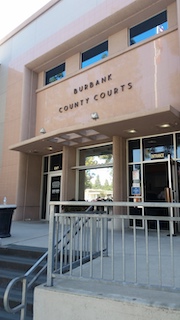What’re the Deadlines Related to a Right to a Speedy Trial?
Every accused has the right to a resolution of the accusation in a manner without delay in the investigation or delay in prosecution. Having a pending, unresolved charge against one is risky in that evidence helpful to defendant may be lost or destroyed and witnesses exonerating to defendant may have fading memories or may lose contact or even pass away.
Indeed, undue unreasonable delays in an investigation or prosecution may violate an accused’s constitutional right to a speedy trial and can support a motion terminating the action or for sanctions under Penal Code § 686. Similarly, the prosecution has a right to a speedy trial (California Constitution Article I, § 29).
The Gist of this Article: There are eight deadlines related to the right to a speedy trial under the Fifth and Sixth Amendments, as made applicable to the states (like California!) through the Fourteenth Amendment. This article lists them out.
It is important to distinguish between preaccusation delay and postaccusation delay. Preaccusation delay arises during the time between the alleged commission of the offense and the time when defendant is actually charged or arrested, whichever comes first. This is a due process issue addressed in both the federal and state constitution (U.S Constitution, Fifth and Fourteenth Amendments; California Constitution, Article I, § 7).
Postaccusation delay occurs after the filing of the accusatory pleading or arrest of defendant. This period of time is addressed by the Sixth Amendment, as well as the Fourteenth Amendment, and the California Constitution, Article I, § 15.
 Burbank Courthouse
Burbank Courthouse
The level of proof needed to successfully request dismissal varies by the type of delay and the type of case, as well as the applicable statute of limitations (Penal Code §§ 799 to 805), when the arraignment took place, when the preliminary hearing took place, when the information was filed in superior court and when trial took place, as well as if defendant ever “waived time,” meaning he or she waived his right to a speedy trial.
So what are the bright-line deadlines one should keep in mind from the outset? The following list is really just a start, and not meant to be an all-inclusive list (and do not apply if defendant waives time, fails to appear in court, there is a new trial ordered, there is a finding that defendant is incompetent to stand trial, or a writ is filed during the time):
- 30 calendar days for a misdemeanor defendant in custody from the time of arraignment or entry of plea, whichever occurs later, to trial (Penal Code § 1382(a)(3));
- 45 calendar days for a misdemeanor defendant not in custody from the time of arraignment or entry of plea, whichever occurs later, to trial (Penal Code § 1382(a)(3));
- 15 calendar days for felony information to file if defendant is held to answer after a preliminary hearing (Penal Code § 1382(a)(1));
- 60 calendar days for trial after filing of information or filing of indictment for a felony defendant regardless of if defendant is in custody or out of custody on bail (Penal Code § 1382(a)(2));
- 10 calendar days for trial after defendant announces ready for trial or objects to further delay once felony or misdemeanor defendant consents that trial be continued beyond statutory limits (Penal Code § 1382(a)(2)(B))
- 90 calendar days for trial for a defendant serving time in state prison or in county jail for a term of longer than 90 days, who makes a proper demand to be brought to trial on another pending state case (Penal Code § 1381);
- 90 calendar days for trial for a person serving time in federal prison in California who makes a valid demand to be brought to trial in a pending state court case (90 days after the prosecutor receives the demand and federal authorities consent to release the prisoner for trial on California charges) (Penal Code § 1381.5); and
- 180 calendar days for trial for a person serving time in any state that is a signatory to the Interstate Compact on Detainers who makes a valid demand for trial (within 180 days after delivery of the demand to the prosecuting attorney and court) (Penal Code § 1389).
For more information about speedy trial issues, please click on the following articles:
- Did the Prosecution Violate Your Sixth Amendment Right to a Speedy Trial?
- Arrested for Misdemeanor DUI in January, 2011; Arraigned in February, 2013; Is Defendant’s Right to Speedy Trial Violated?
- Sixth Amendment Right to a Speedy Trial Not Violated When There Is a Seven Year Delay Between Arrest and Murder Trial
Contact us.  Burbank Courthouse
Burbank Courthouse